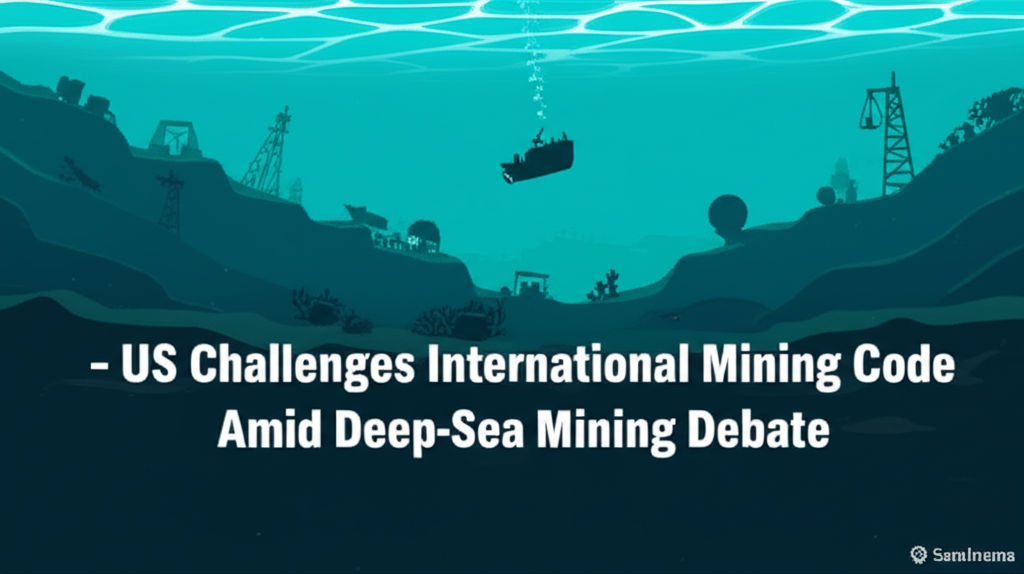
Saralnama
The United States, under the Trump administration, has taken steps to fast-track deep-sea mining in international waters, challenging the existing international regulatory framework governed by the United Nations Convention on the Law of the Sea (UNCLOS) and the International Seabed Authority (ISA). The US is reviewing a Canadian company's mining permit application, potentially bypassing the international mining code designed to regulate seabed mining and protect marine environments. Deep-sea mining involves extracting minerals like nickel, cobalt, and manganese from polymetallic nodules on the ocean floor, resources critical for lithium-ion batteries used in renewable energy technologies. While over 160 countries have ratified UNCLOS, the US has not, and more than 30 nations are calling for a moratorium on deep-sea mining due to environmental concerns and limited scientific understanding of deep-sea ecosystems. The ISA continues to negotiate a comprehensive Mining Code to regulate exploitation sustainably, but delays and disputes persist. Environmental advocates warn of irreversible harm to marine life from mining activities, while proponents argue that terrestrial mining impacts justify seabed mining. The situation remains unsettled as the international community grapples with balancing resource needs and ocean conservation. (Updated 24 Aug 2025, 22:46 IST; source: link)
